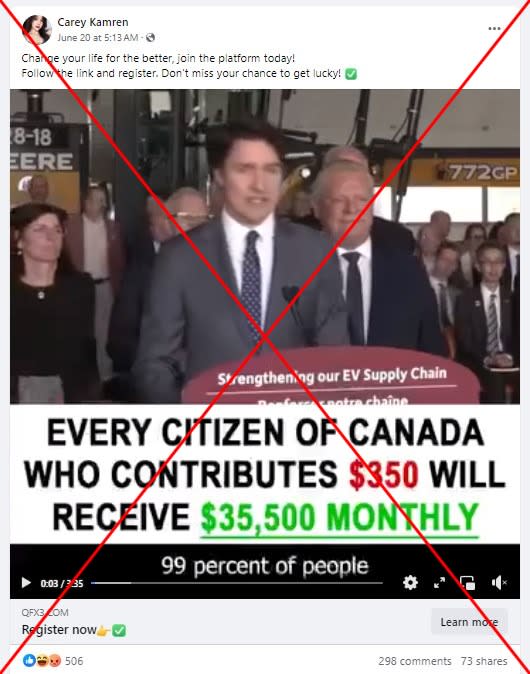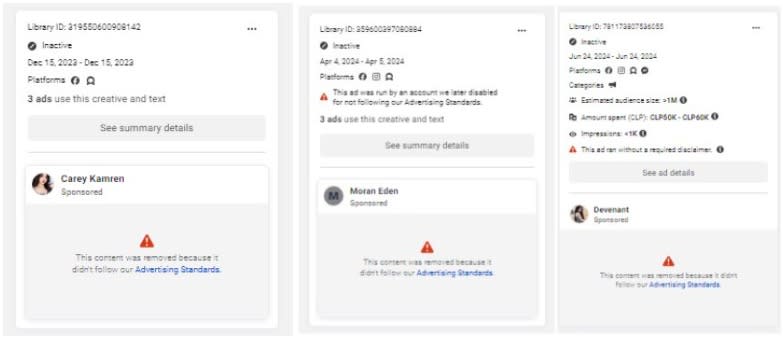Manipulated video targets Canadians with fake financial offer
Video advertisements on Facebook appear to show Prime Minister Justin Trudeau announcing a new AI investment program offering massive returns for Canadians. But the clip is altered, and the pages spreading the posts have previously had content removed for violating Meta's advertising standards.
"Every citizen of Canada who contributes $350 will receive $35,500 monthly," claims text over a video shared in a June 20, 2024 Facebook post.
The footage appears to show Trudeau discussing the rising cost of living in Canada before endorsing a purported investment scheme powered by artificial intelligence.
"What problems do you have right now that you could solve by earning several times more, for example $1,000 a day with minimal investments of about $350?" he appears to ask.

But the audio in the clip is altered.
In the video, Trudeau stands at a podium with the phrase "Strengthening our EV Supply Chain" on it. Behind him is Ontario Premier Doug Ford.
A keyword search surfaced the original video, which Canada's Cable Public Affairs Channel posted May 14, 2024 on YouTube (archived here).
A press release from the prime minister's office says the event welcomed Asahi Kasei Corporation's investment of nearly Can$1.6 billion to build an EV battery separator plant in Port Colborne, Ontario (archived here).
At no point during the event did the prime minister mention an AI investment program.
Unreliable pages
AFP identified at least three pages running the ads. All of them have previously had content removed for violating Meta's rules, according to the Meta Ad Library.

Additional clues also indicate the offer is inauthentic:
The movement of Trudeau's mouth is not synched with the words he says in the clip.
The link in the post leads to inaccessible or unrelated websites, including that of a New York-based bookseller.
AFP has previously reported on deepfakes and fraudulent investment schemes targeting Canadians.


